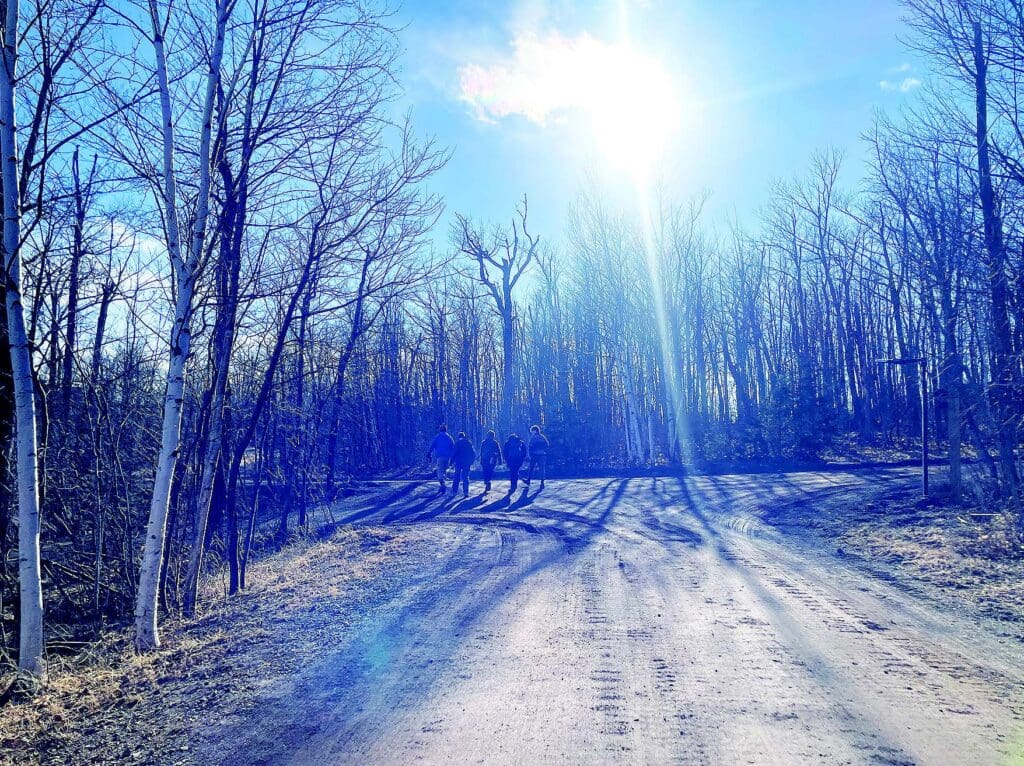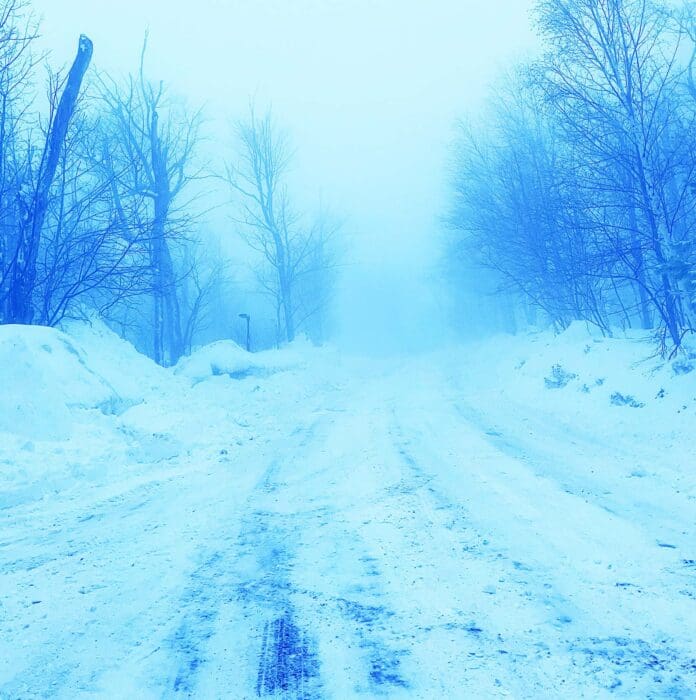This time last year, visitors to Wolf Ridge Environmental Learning Center were greeted with 47 inches of snow covering the ground. Students navigated through the snowy woods in Cross Country Skiing, melted snow to make hot chocolate in Winter Survival, and learned snowshoeing techniques in Superior Snowshoe. This year, winter at Wolf Ridge looked a lot different. While the same classes were taught, students and naturalists alike had to adapt to the consequences of the record-setting warmth they experienced this winter. The cross-country ski season only lasted two weeks, students used pre-filled water bottles to make hot chocolate, and naturalists taught snowshoeing classes on two inches of snow.

Diego Medina, a graduate naturalist at Wolf Ridge, has experienced the adverse effects of the warm weather. “The warm winter has definitely made some classes difficult, like Superior Snowshoe. It’s often disappointing because we have kids from all different backgrounds, some of whom are excited to do things like snowshoe for the first time. So we go out and try it, but there’s just a bit of snow and so much dirt.”
This warm winter is not a fluke. Across the world, communities are facing the adverse effects of climate change and the North Shore is no exception. Warming temperatures and unusual weather patterns will continue to affect organizations like Wolf Ridge and the field of environmental education in general. According to the National Oceanic and Atmospheric Administration (NOAA), the United States just experienced the warmest winter on record, with climate disasters and anomalies spanning the country. Climate change impacts are increasing for Americans as extreme climate events disturb ecosystems, exacerbate existing social inequities, and cost billions of dollars in damages.
Charlie Pavlisich, STEM coordinator at Wolf Ridge, spoke about the importance of place-based climate change education as the effects of climate change become increasingly severe and erratic. He explained that as the effects of climate change grow increasingly visible, it will become easier to talk about climate change. “The hard part about where we are on the North Shore is that phenomena like oceans rising are difficult to understand. At Wolf Ridge, we will get in-your-face effects, like our lake icing in and out weeks earlier, and it will be easier to see and talk about climate change,” Charlie said.
Both Diego and Charlie spoke to the need to adapt as environmental educators in this stage of the climate crisis. Climate change “will change how we teach,” said Diego. “Maybe the lakes won’t freeze anymore, so we won’t teach Frozen Lake Study. Animals like raccoons are moving up here and we’ll have to update our lesson plans to include them. Ultimately, we’re going to have to transition from how things used to be to how they are.”






